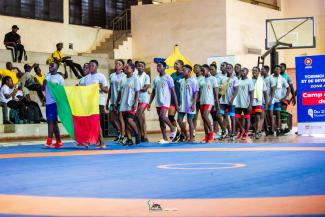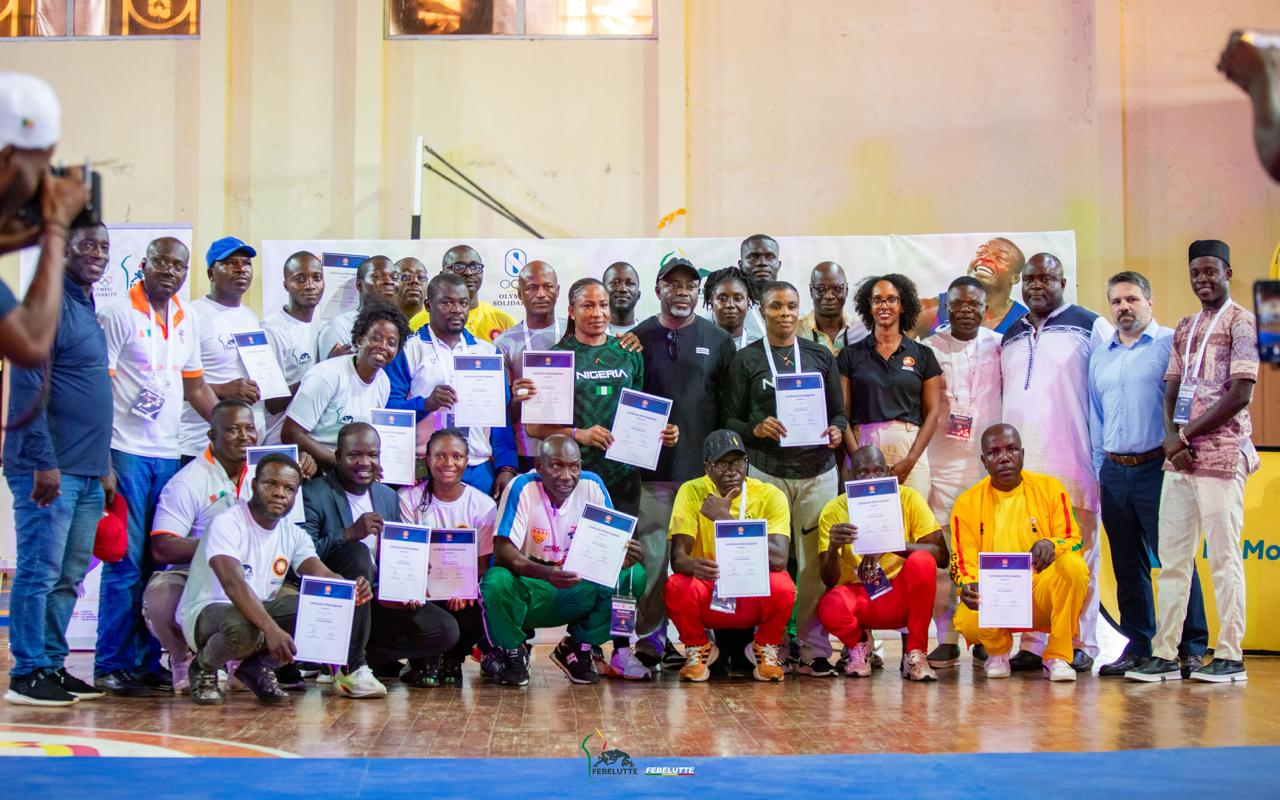‘Now is the right time to do this’: Delivering wrestling’s first digital World Championships
Saturday, September 3, 2022 - 12:50 By United World Wrestling Press

COSIER-VEVEY (August 30) --- Our decision to undergo a digital transformation at United World Wrestling (UWW) can be dated back to as early as 2014 – a year after the federation was reinstated into the Olympic Program. As is the nature of digitalization and the importance of getting the timing and product launch just right, we’ve now entered year one of a new digital era at UWW following the launch of our very own mobile app, organic video hub, and customer relationship management (CRM) tool, in time for the Wrestling World Championships (10th to 18th September).
The vision to revolutionize the sport was first tabled by our president Nenad Lalovic, who, since taking up the presidency in May 2013, has advocated change to the makeup of international wrestling and how we look to engage new fans and stakeholders. By putting digital transformation at the heart of our modernization, we are in the midst of the biggest transition our sport will experience in modern times and will certainly enhance the offering we provide to our fanbase, to our athletes, and to our national federations.
Now is the right time to do this. Why? There are many industries that have already gone through this process and is something we are seeing more across the sports industry. This is not something that can wait another five years before we look to instigate change. By then, it might be too late. As the Olympic Movement attracts new audiences, we have to stay ahead and modernize with the industry, in order to set new goals, and not to shy away from doing things differently.
The pandemic shone a light on the challenges that we faced as an international federation and some of the changes we needed to make. For example, we implemented distance-learning and webinars that brought our community closer together during trying times. This at large is how we plan to continue – to provide digital solutions, not only as a digital transformation “check-box”, but to help our national federations grow and bring about positive change to the sport of wrestling.
The exciting thing about digitalization is that it offers infinite possibilities. We can certainly provide a broader offering for our audience, but for our sponsors, national federations, and the grassroots of our sport, too. There are many different tools that will allow us to move forward and offer new opportunities to stakeholders. Digital transformation expands our ability to adapt to new trends and to leverage customer data that will influence how we distribute content.
UWW IS EXPANDING ITS DIGITAL FOOTPRINT
With the proliferation of D2C technologies, our fans have naturally spread across so many different platforms. In the past, we didn’t pay too much attention to what the individual consumer wanted. So, without a digital portfolio, we have been unable, until now, to stay connected with our growing fanbase.
This observation has formed the basis for UWW’s digital transformation and is already reaping rewards. Our investment strategy covers three key areas – mobile, video, and data capture – all of which are designed to bridge the relationship with our core and newcomer fans and the sport of wrestling.
Without the means for a direct relationship with our audience, UWW has until recently been unable to engage fans retrospectively, nor have we been able to build their connection with our sport at a level of engagement we hope to achieve via our new mobile application and the video hub. By expanding our digital footprint, and taking ownership of customer data these platforms will collate, we can explore more easily our relationship with our audience via the CRM and tailor the D2C experience to the individual fan.
Before the launch of our latest products, in the past year, we have seen increased engagement from the followers of our sport. In the year leading to the 2022 World Championships, UWW social channels grew by 21 percent to more than 2.25 million followers, according to research carried out by Redtorch, including 78,500 new followers between April and June of this year. Going forward, by taking this direct-to-consumer (D2C) approach, we will be able to build audience engagement ahead of our flagship events, establish trust during the championships, and continue to build loyalty among our growing fan base.
The way we’re trying to operate today – not only as a service, but also as a video content provider – is to communicate directly with people, and extends to our partners, too. As well as serving fans who watch wrestling from their homes, our digital approach also enables us to provide more dynamic packages for sponsors, more content for broadcasters, and therefore richer, more entertaining, video content tailored for our audiences.
This is UWW bringing that vision we laid out over the past decade to fruition. By improving the experience, we will provide a more consolidated, one-stop shop capable of delivering everything a passionate wrestling fan is going to be pleased with. Going forward, this will help us to engage new fans based on their interactions with our digital products and customize their experience from the moment they begin watching the sport and one that builds a rapport between UWW and its audience. This will serve us well for many years to come.

DIGITAL TRANSFORMATION REQUIRES EXPERT SUPPORT
Before we began our digital transformation, we set out a roadmap to ensure that our end-goal was clear. In year one, we’re focusing on our mobile app, video hub, and the CRM. But that’s just the beginning of the journey. By moving our operations to the cloud, it will allow us to scale our production without upsetting the quality for our subscribers.
We want to attract larger audiences. Whereas, in the past, we haven’t been equipped to meet greater demand from the wrestling community, our digital transformation will unite our athletes, coaches, and stakeholders into an efficient, paperless ecosystem, whereby our national federations will be able to communicate ideas and solutions via a centralized home for wrestling.
While exciting from the outside, I must be honest about our journey so far and the value we’ve drawn from external consultation. Digital transformation is certainly not something that organizations can take on alone. There needs to be resources in place and experts you can work with to set the right structure and roadmap in place to deliver on our transformation targets.
In order to achieve our goals, we have been working alongside N3XT Sports since last year, and the team continues to provide the soundboard for building new ideas for digitalization and to identify the challenges and opportunities it will present us in the future. The entire working group at N3XT Sports – from the consultants, to the project manager to the designers and engineers – provide expert advice and know-how when it comes to understanding the long-term journey for digital transformation.
From the moment we put ideas down in writing, through to the execution and delivery of our new digital portfolio, the entire working group has demonstrated the basis of change-management inside an international federation like ours. It’s important for a whole organization – and not only a handful of departments – to contribute to the project. In return, this helps align our vision as the global governing body with the realities of our regional partners, coaches, and athletes.
In doing so, we have learnt that digital transformation is a long-term commitment. Having taken the first and most important step on our journey, N3XT Sports and our strategists continue to envision how the decisions we make today will impact and open up new opportunities for the sport of wrestling in the future. This level of detail is vital if we want our digital transformation to be a success in the decades to come. We are very excited to be on this journey and look forward to inviting you to join us.



Share your thoughts.
Comments